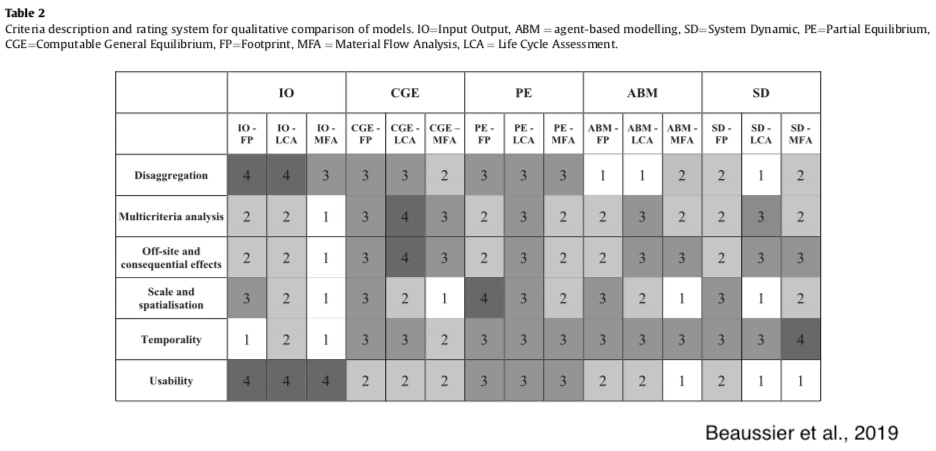AFFORBALL
|
Article scientifique T. Beaussier, S. Caurla, V. Bellon-Maurel, et al. Coupling economic models and environmental assessment methods to support regional policies: A critical review Journal of Cleaner Production, 2019, 216, 408-421. This review analyses and compares the most promising methods to perform ex ante economic and environmental assessment of policies at the meso scale, i.e. from local communities to subnational regions. These methods called Economic-Environment Integrated Models (EEIM) are based on the coupling of formalised economic modelling tools with environmental assessment methods. The economic modelling tools considered are Input Output (IO) models, Computable General Equilibrium (CGE) and Partial Equilibrium (PE) models, Agent-Based models (ABM), and System Dynamics (SD) models, which we pair with environmental assessment methods such as Footprints (FP), Life Cycle Assessment (LCA), or Material Flow Analysis (MFA). A grid of criteria is developed to perform a qualitative rating of the EEIMs according to existing literature. The grid encompasses the detail level of the economic modelling, the level of coupling between environmental and economic tools, the quality and diversity of indicators, the ability to account for diverse indirect effects, spatial differentiation, time aspects, and the coupled model usability. First, the results show that the couplings do not perform on the same criteria, which shows complementarity to deal with diverse issues. Second, overall, for most criteria, PE/CGE models coupled with FP/LCA ranked highest. Third, a few case studies showed that couplings involving a third tool can be beneficiald for instance AB modelling or MFA with PE/CGE-LCA/FP may allow to overcome some shortcomings such as agent behaviour modelling or data availability for biophysical flows.Keywords : model coupling, economic modelling, environmental assessement, integrated assessment, regional policy, sustainability A consulter ici : https://www.sciencedirect.com/science/article/pii/S0959652619300265  |